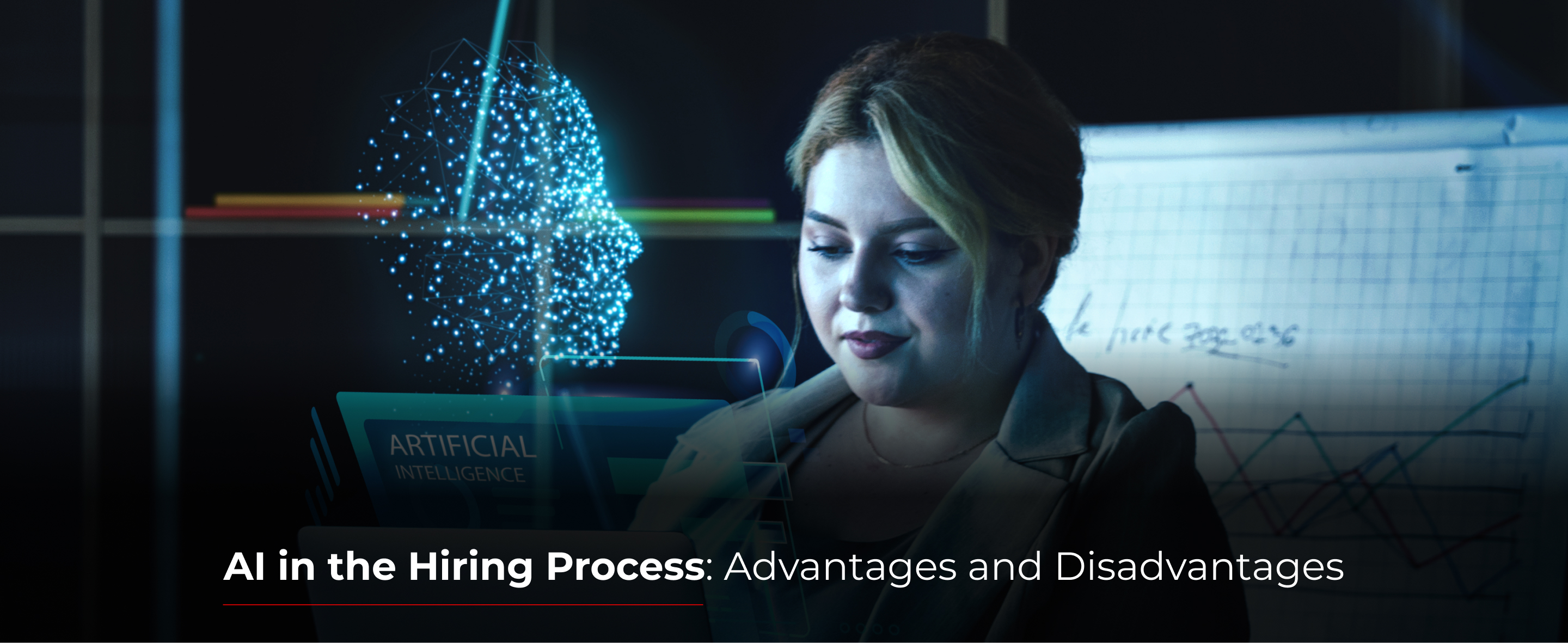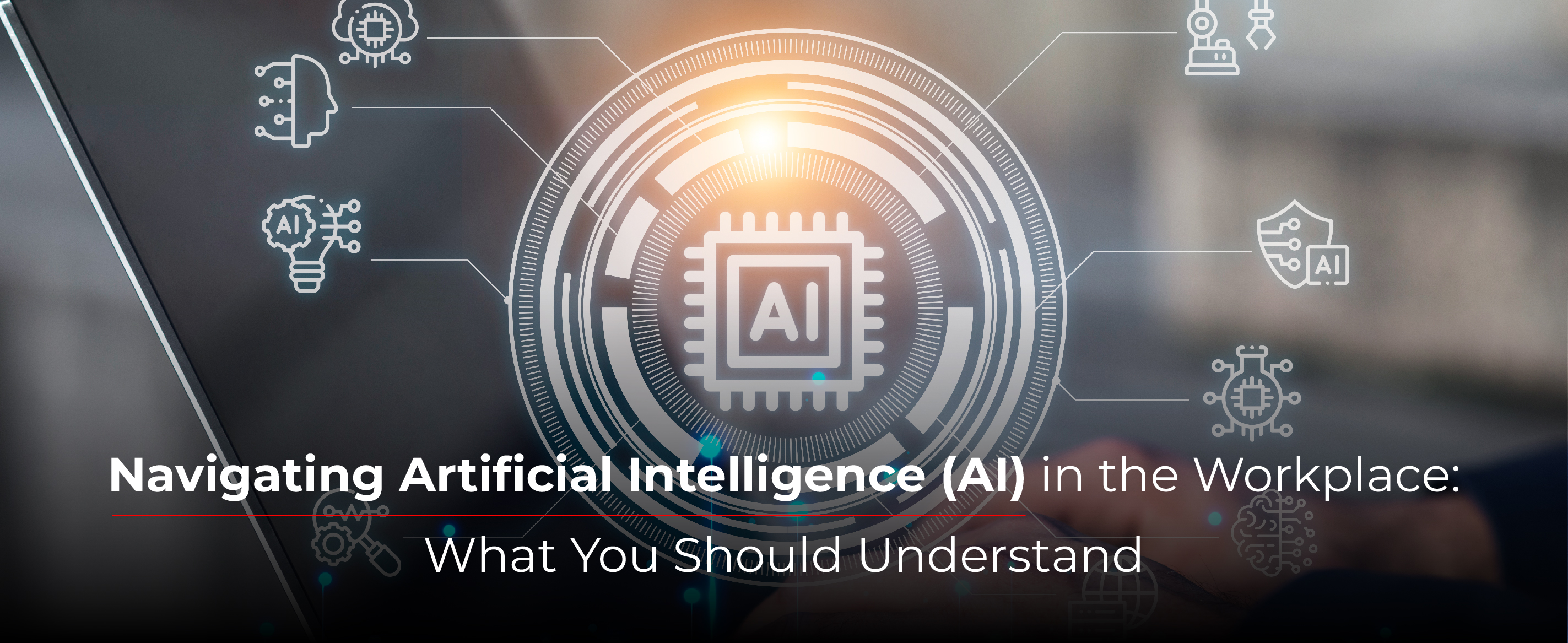
Artificial Intelligence (AI) has significantly transformed the hiring process, offering both advantages and disadvantages to organizations. On the positive side, AI-driven tools streamline and expedite recruitment by automating routine tasks such as resume screening, candidate matching, and initial assessments.
This not only saves time but also enhances the efficiency of the hiring workflow, allowing recruiters to focus on more strategic aspects. Additionally, AI algorithms can help in identifying diverse talent pools and mitigating unconscious biases during the initial stages of candidate evaluation.
However, the use of AI in hiring comes with challenges, including concerns about algorithmic bias, data privacy issues, and the potential to overlook nuanced qualities that are essential for certain roles. Striking a balance between leveraging AI’s capabilities for efficiency and ensuring fairness in the hiring process remains a critical consideration for organizations navigating the evolving landscape of recruitment technology.
Advantages of AI in the Hiring Process:
-
Efficiency:
- Advantage: AI streamlines the initial stages of recruitment by automating repetitive tasks such as resume screening and initial candidate evaluations. This efficiency saves time for recruiters and allows them to focus on more strategic aspects of the hiring process.
-
Data-Driven Decision Making:
- Advantage: AI analyzes large datasets to identify patterns and trends, enabling more informed and data-driven decision-making. This can lead to better candidate matches and improved overall hiring outcomes.
-
Improved Candidate Experience:
- Advantage: AI-driven chatbots and virtual assistants can provide real-time responses to candidate queries, enhancing the overall candidate experience. This immediate engagement can positively impact a candidate’s perception of the hiring organization.
-
Bias Reduction:
- Advantage: AI has the potential to reduce unconscious biases in the hiring process by focusing on objective criteria and qualifications rather than subjective factors. This can lead to a more diverse and inclusive workforce.
-
Predictive Analytics:
- Advantage: AI algorithms can predict candidate success based on historical data and performance metrics. This predictive analytics approach helps organizations identify candidates with the highest likelihood of success in a particular role.
-
Cost Savings:
- Advantage: Automated processes can result in cost savings for organizations, especially in the early stages of recruitment. AI tools can handle high-volume tasks, reducing the need for extensive manpower and resources.
Disadvantages of AI in the Hiring Process:
-
Bias and Fairness Concerns:
- Disadvantage: AI systems can inadvertently perpetuate biases present in historical data, leading to unfair and discriminatory outcomes. It is crucial to regularly audit and update algorithms to mitigate these biases.
-
Lack of Human Touch:
- Disadvantage: The reliance on AI may lead to a lack of human connection in the hiring process. Candidates may feel alienated if they perceive the process as too automated, missing the personal touch that human recruiters can provide.
-
Complex Implementation:
- Disadvantage: Implementing AI systems can be complex and requires significant resources and expertise. Small and medium-sized businesses may find it challenging to adopt and maintain sophisticated AI-driven recruitment processes.
-
Overemphasis on Keywords:
- Disadvantage: AI systems may overly rely on keywords and specific criteria, potentially overlooking qualified candidates who do not precisely match the algorithm’s expectations. This can result in missed opportunities for diverse talent.
-
Privacy Concerns:
- Disadvantage: AI systems often deal with sensitive personal data. Maintaining candidate privacy and ensuring compliance with data protection regulations can be challenging, especially when dealing with large datasets.
-
Technical Glitches:
- Disadvantage: Like any technology, AI systems are susceptible to technical glitches and errors. These glitches can lead to inaccurate assessments and decisions, impacting the overall effectiveness of the hiring process.
In conclusion, while AI in the hiring process offers numerous advantages in terms of efficiency, data-driven decision-making, and bias reduction, organizations must be mindful of the potential disadvantages, such as bias concerns, lack of human touch, and technical challenges. Striking the right balance between automation and human involvement is crucial to leveraging the benefits of AI in recruitment effectively. Regular monitoring, evaluation, and ethical considerations should guide the integration of AI into the hiring process.
View Jobs – https://www.shrofile.com/jobs.php
Let Shrofile Executive Search Find You Transformational Talent
Does your company need a dynamic and forward-thinking leader? Get in touch today and learn more about how we find and place transformational talent.
For more Updates
Website – www.shrofile.com
Facebook page – https://www.facebook.com/shrofile/
Twitter page – https://twitter.com/shrofile
Linkedin Page – https://www.linkedin.com/company/shrofile/
YouTube Page – https://www.youtube.com/channel/UChVfJqpTjx1dHJ2xq_dMtAw
Instagram Page – https://www.instagram.com/Shrofile/




